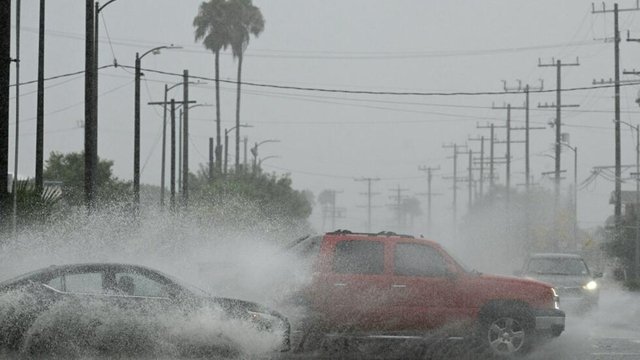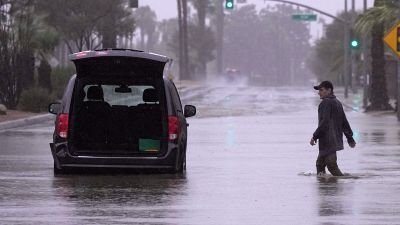
In a dramatic convergence of natural forces, a powerful earthquake recently struck parts of California, sending shockwaves through communities already grappling with the onslaught of a fierce storm. The event serves as a stark reminder of the delicate balance between the Earth's geological processes and the ever-changing dynamics of weather patterns.
The earthquake, which registered a magnitude of 6.8 on the Richter scale, struck the coastal region of California during the peak of a winter storm. The inclement weather had already brought heavy rains, strong winds, and flooding to various parts of the state. The seismic event added an additional layer of complexity to an already challenging situation, highlighting the interconnectedness of Earth's various systems.
Geologists and seismologists were quick to respond, working tirelessly to assess the extent of the damage and the potential implications of this natural event. California, situated on the notorious San Andreas Fault, is no stranger to seismic activity. However, the timing of this particular earthquake in the midst of a storm highlighted the unpredictable nature of Earth's phenomena and the challenges in preparing for such compounded events.

One of the immediate concerns was the potential for landslides triggered by heavy rainfall and seismic shaking. Landslides can be catastrophic, causing significant damage to infrastructure, displacing communities, and hampering rescue and relief efforts. Emergency response teams had to adapt their strategies to simultaneously address earthquake-related hazards and storm-related emergencies.
The incident underscored the importance of community preparedness and resilience. Californians are well-acquainted with earthquake safety measures, but the added dimension of a concurrent storm necessitated a comprehensive approach to disaster readiness. Evacuation plans had to account for potential flooding, landslides, and power outages, demonstrating the need for multifaceted contingency strategies.
Furthermore, the event highlighted the interconnectedness of climate change and geological activity. While it's important not to directly attribute any single seismic event to climate change, the changing climate can indirectly influence geological processes. For instance, prolonged periods of heavy rainfall can increase the weight of the Earth's crust, potentially triggering earthquakes in fault-prone areas. This interplay between climatic and geological factors necessitates a holistic approach to understanding and mitigating natural disasters.
In the aftermath of the earthquake, researchers seized the opportunity to study the event's broader implications. The data collected will contribute to ongoing efforts to better understand the mechanics of earthquakes and improve early warning systems. As technology advances, the hope is that such systems will provide critical seconds to minutes of advance notice, enabling people to take cover, machinery to halt, and transportation systems to slow down, potentially saving lives.
As the world grapples with an increasingly unpredictable climate and the persistence of geological forces, the recent earthquake during a storm in California serves as a poignant reminder of our vulnerability in the face of nature's dual onslaught. It underscores the need for continuous research, adaptive strategies, and collaborative efforts to develop comprehensive disaster preparedness plans.
Ultimately, the event is a testament to the resilience of communities in the face of adversity. Californians have shown their capacity to come together, support one another, and rebuild after setbacks. As we learn from these events, it is imperative that governments, communities, and individuals invest in education, infrastructure, and technologies that enhance our ability to withstand the dual forces of nature. By understanding the intricate dance between geological and climatic phenomena, we can strive to build a safer, more resilient world for generations to come.